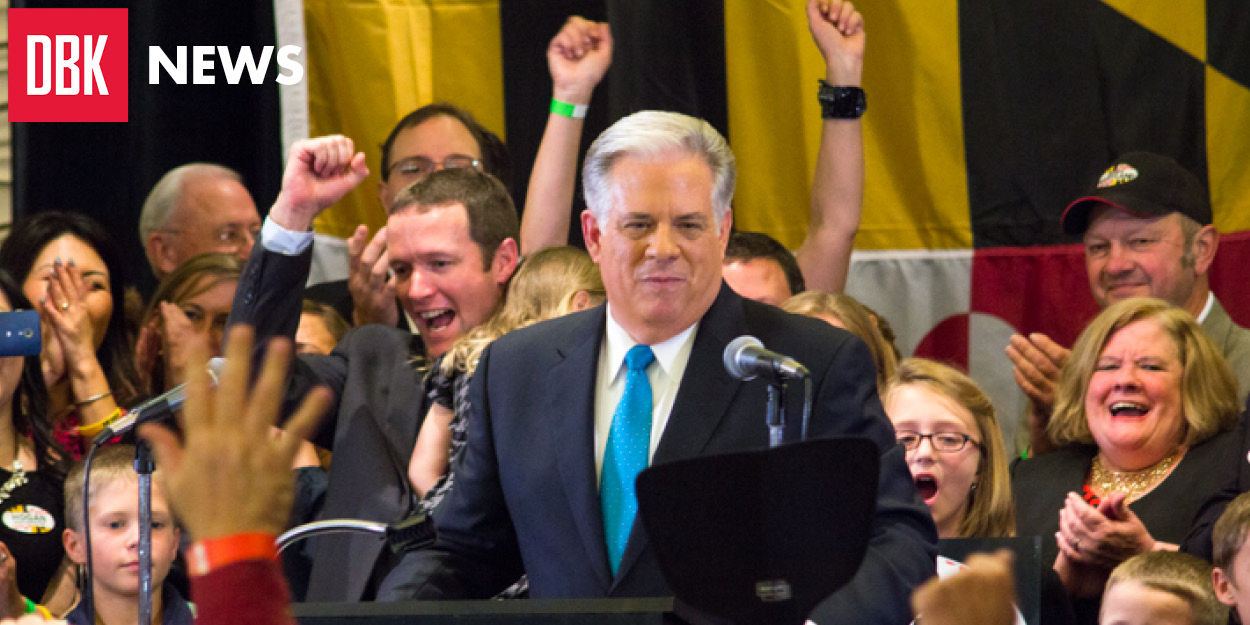
Republican Larry Hogan upset Lt. Gov. Anthony Brown (D) in this state’s gubernatorial race last night. It was only the second time this state has elected a Republican governor since the 1960s.
Hogan, the Anne Arundel businessman who campaigned on a platform dominated by the economy and jobs, earned about 52 percent of the vote and captured 20 of the 23 counties. He did not win Baltimore City, which is heavily Democratic-leaning.
Hogan is the first governor elected using the state’s public financing system. This limited his direct campaign spending to $2.6 million, with additional support from the Maryland Republican Party. Brown’s campaign raised more than $7 million, according to a press release.
Brown’s campaign targeted Hogan’s stances on social issues through negative attack ads questioning his position on gun control and women’s issues. Hogan reaffirmed throughout his campaign that he would not roll back legislation on these issues.
Hogan’s economic message resonated with voters who grew tired of the status quo under the O’Malley-Brown administration, said Christine McEvoy, chairman of the Maryland Federation of College Republicans.
“The high taxation of the O’Malley-Brown administration really took a toll on the state and voters responded to it in a big way,” McEvoy said. “Hogan brought in innovative ideas and a fresh, new direction.”
From the beginning of the evening, officials and attendees of Hogan’s election night event maintained optimism and high expectations, despite historical difficulties for Republican candidates in the typically Democratic stronghold. In this state, registered Democrats outnumber Republicans 2 to 1.
Campaign volunteers cited this state’s unemployment rate, which rose above the national average during the O’Malley administration, and the state’s business climate as indications the time had come for a change.
“The last eight years really showed what can happen in an unfriendly business environment. Hogan can bring the economic surge and business expertise that the state needs,” said Ashley Judah, a Hogan campaign volunteer and junior at Marymount University. “It’s time for ‘business as usual’ to change.”
The Brown campaign secured an early lead as votes were tallied in precincts across the state, but spirits remained high in the Westin Annapolis hotel as local band Bobby and the Believers played for event attendees.
The first announced totals were for Talbot, Frederick and Queen Anne’s counties, all of which leaned toward Hogan early.
“Don’t go anywhere,” former state Del. Alfred Redmer Jr., who served as the announcer for the event, warned the audience. “This is going to be a historic night.”
By the time 367 of 1,986 precincts reported, Hogan took the lead, besting Brown 49.49 percent to 48.87 percent. From there, there was no looking back.
“I was super scared watching the election coverage at first,” said Skyler Golt, a junior environmental science and policy major at this university and a member of College Republicans. “But once it passed 50 percent of precincts reporting, the lead never went down. It was amazing.”
Golt, who attended Hogan’s rally in Baltimore, which included a visit from New Jersey Gov. Chris Christie (R), also talked to students on the campus ahead of the elections. He didn’t get the impression many would be casting ballots for Hogan.
“A few of us from the club stood outside [of the Stamp Student Union] and passed out pamphlets; we talked to quite a few students,” Golt said. “There were a few ‘closet Republicans,’ as they call them, but other than that, people mostly gave me a really dirty look.”
Prince George’s County was one of the few counties in the state where Brown had success by a significant margin. He won with more than 84 percent of the votes there.
On the campus, the election outcomes could result in increased discourse and debate among different ideologies, said Breyer Hillegas, president of this university’s College Republicans chapter.
“Right now, the campus really bows down to liberal thinkers and can suppress conservative thought. Having a governor of the minority party will actually help people on-campus who don’t agree with every piece of liberal ideology,” Hillegas said. “Hopefully it will help people from all around the political spectrum to feel better about expressing their ideas.”
Brown officially conceded the race just after midnight. Not long afterward, Hogan took the stage, standing in front of supporters and a draped Maryland flag.
“Wow,” Hogan said, amid cheers. “What a historic night in Maryland.”



